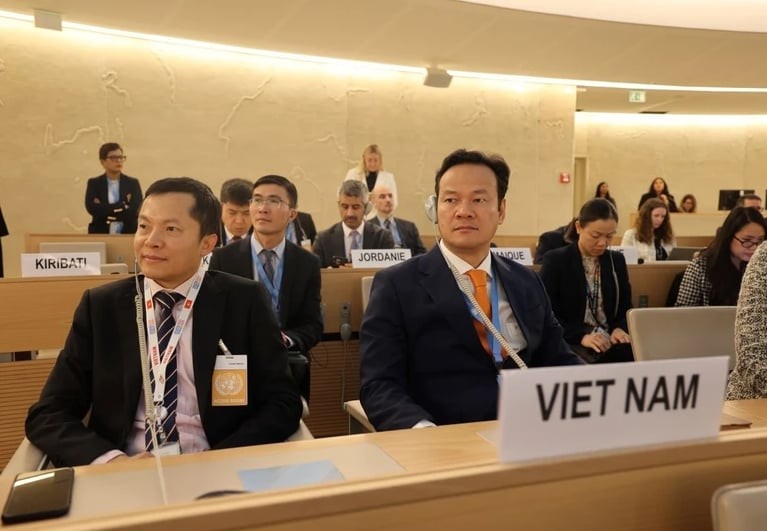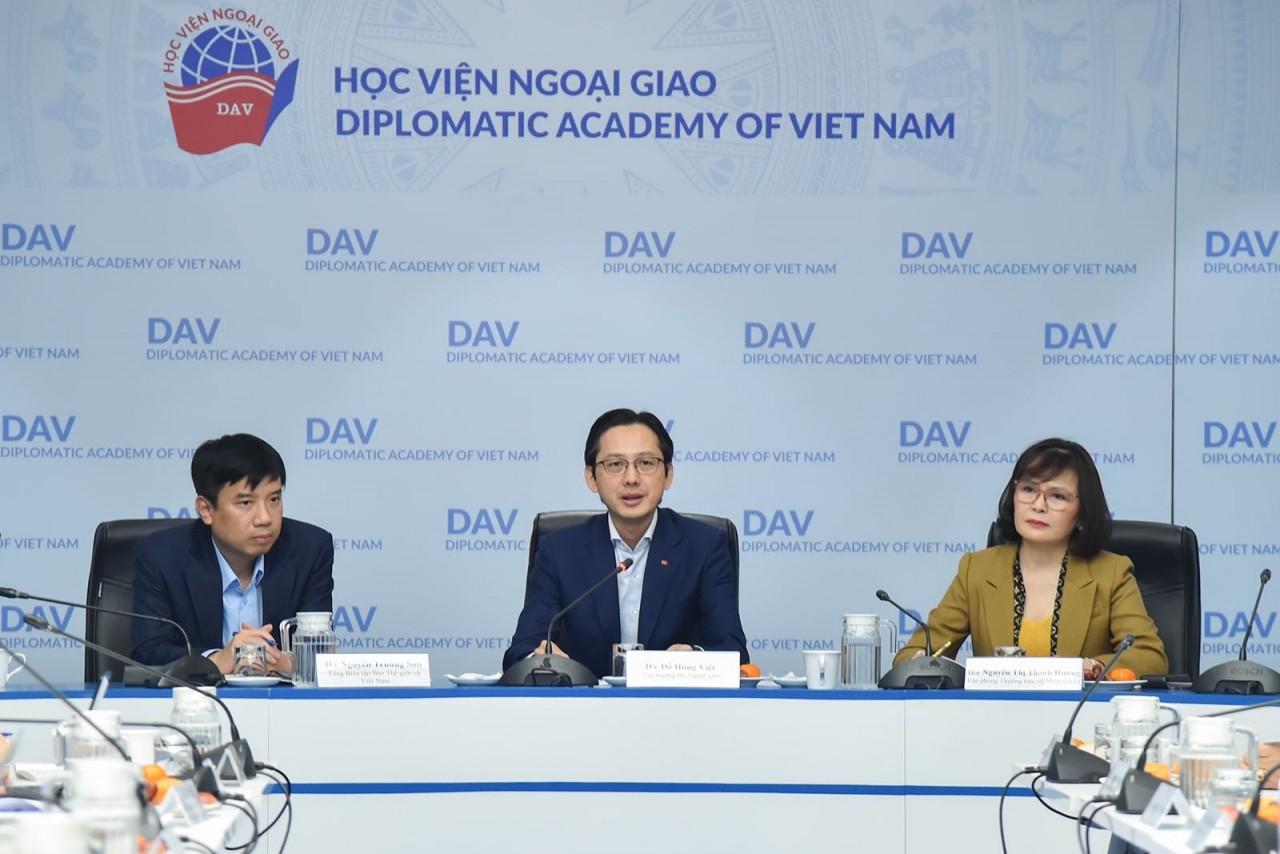Responding to Gender-Based Violence - Urgent Action to Protect Human Rights
Citing a study conducted in 2019, Deputy Minister of Vietnamese Ministry of Labour, Invalids and Social Affairs (MoLISA) Nguyen Thi Ha stressed that the above figures give us a lot to think about about solutions, ways and actions to reduce gender-based violence, protect human rights in the most effective way.
An action partnership network for gender-based violence prevention and response was launched at a seminar co-hosted by the MoLISA and the United Nations Population Fund (UNFPA) on Dec. 14.
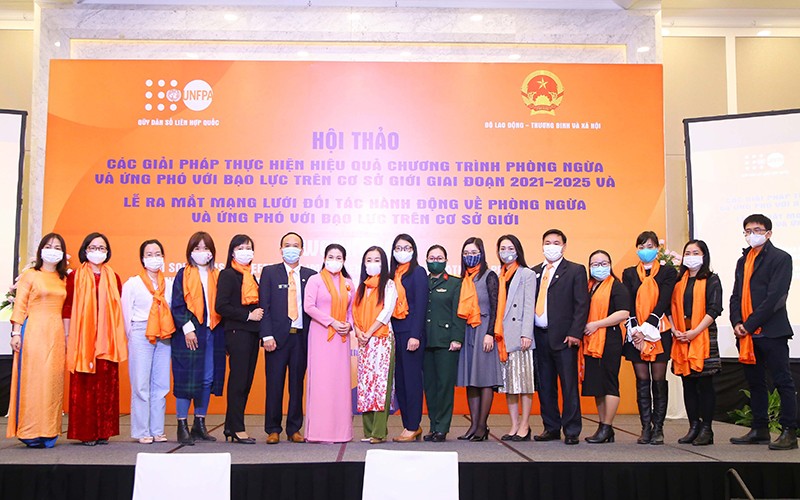 |
| The seminar held both online and offline. Photo: MoLISA |
Gender-based violence is a common human rights violation
Speaking at the opening ceremony, MoLISA Deputy Minister Nguyen Thi Ha pointed out that gender-based violence is an alarming problem in many countries around the world and is the most common human rights violation. Gender-based violence occurs widely in families, workplaces, schools, and public spaces in many different forms, with the root cause being gender discrimination.
Across their lifetime, 1 in 3 women, around 736 million, are subjected to physical or sexual violence by an intimate partner or sexual violence from a non-partner – a number that has remained largely unchanged over the past decade.
Since the beginning of 2020, the Covid-19 pandemic has had a serious impact on most countries around the world, causing not only loss of human life, economic recession but also pressures in the economy. life has contributed to the increase in gender-based violence and domestic violence. In many countries, the estimated number of people experiencing violence has increased by at least 30%.
According to a study conducted in 2019, nearly two-thirds (62.9%) of Vietnamese women experienced at least one or more types of violence in their lifetime by their husbands.
Half of the women who experienced violence by their husbands had never told anyone. Almost all women (90.4%) who experienced physical and/or sexual violence from husbands did not seek any help from formal service providers.
Violence against women has serious consequences on economic development, as well as physical and mental health. It is costing Vietnam’s national economy the equivalent of 1.8% of Gross Domestic Product (GDP) in 2018.
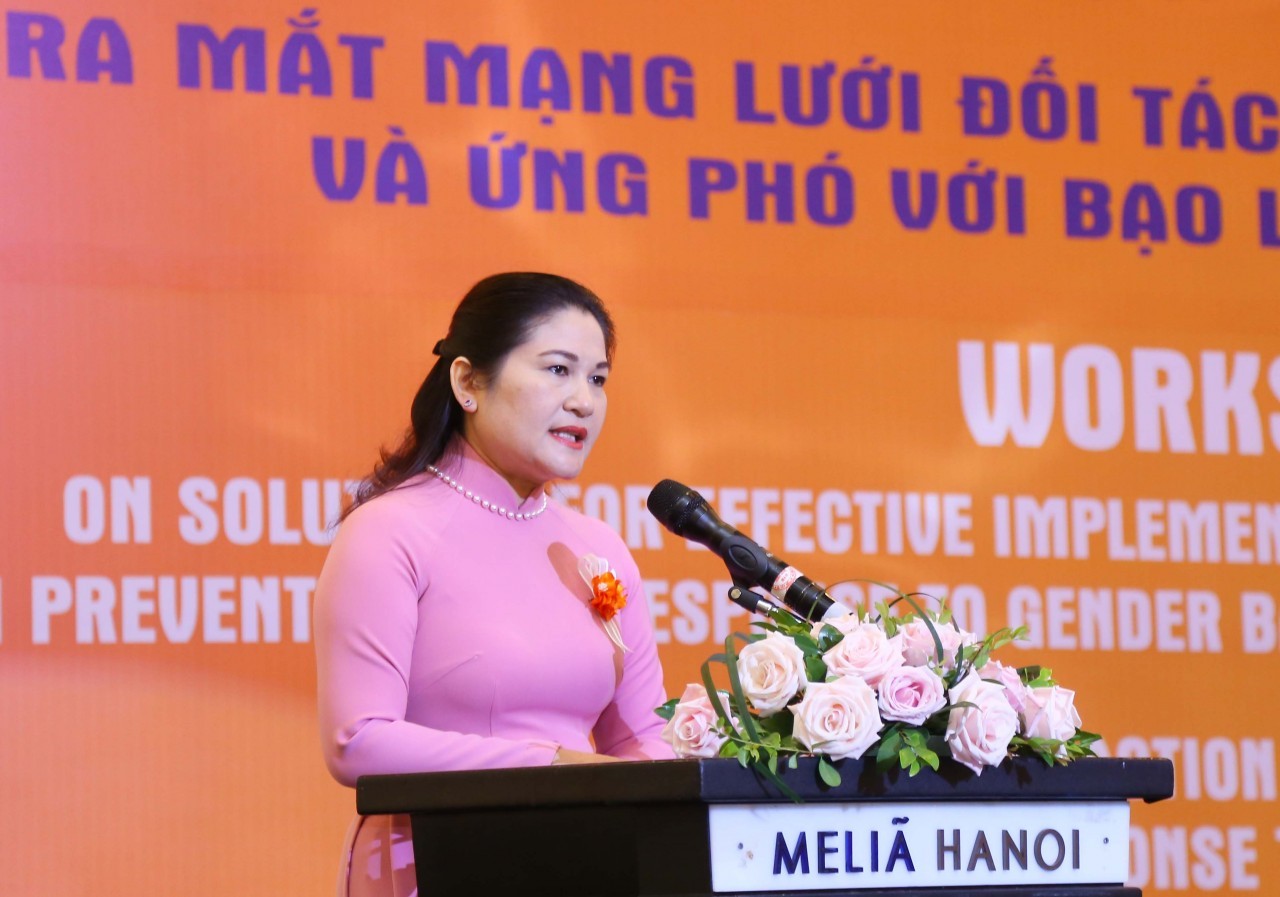 |
| Gender-based violence is an alarming problem in many countries around the world and is the most common human rights violation, said MoLISA Deputy Minister Nguyen Thi Ha. |
According to Ha, all levels and branches from the central to local levels have implemented many solutions such as perfecting policies and laws on gender equality; strengthen communication to raise awareness and change people's actions on realizing gender equality and eliminating gender-based violence; deploying models and services to support victims of violence. Activities to prevent, intervene and support victims of violence have had positive effects, but more efforts are required to bring greater effectiveness in the fight to eliminate gender-based violence in Vietnam.
Strengthen cooperation in response to gender-based violence
MoLISA Deputy Minister Nguyen Thi Ha emphasized the prevention and response to gender-based violence will face many difficulties and challenges without close and synchronous coordination between levels and sectors, from local government to agencies, service providers and each person in the community.
The good performance of the roles and responsibilities of agencies, departments, specific voices and actions of each individual in the community will help those experiencing violence not feel alone, vulnerable or discriminated against, Ha said.
Victims of violence need to be protected so that they can return to normal life soon, and perpetrators of violence need to be dealt with seriously. That is the way for us to prevent violence, build happy family, community, safe society, equality, progress and civilization, Ha added.
Approved by the Prime Minister, the programme on gender-based violence prevention and response set a target that by 2025, at least 50% of gender-based violence victims will receive support from service suppliers and all having demand will be assisted in various forms.
To achieve these goals, the workshop participants discussed and suggested solutions in the application of information technology in preventing and responding to gender-based violence; share difficulties, challenges and solutions in providing legal aid services to support victims of violence. Especially, experience in building inter-sectoral coordination mechanisms in support of victims via the launch of Anh Duong (Sunshine) House, a shelter providing essential services to survivors of violence against women and girls based in the northern province of Quang Ninh.
The model is the first of its kind in Vietnam within the framework of the cooperation programme between MoLISA and UNFPA which is funded by the Korea International Cooperation Agency (KOICA).
The Anh Duong House, which has become operational since April 2020 under the provincial Department of Labour, Invalids and Social Affairs, provides round-the-clock and free necessary services to the victims and offers an emergency shelter to them, giving them health care services, equipping them with life skills and vocational training, and helping them seek jobs and integrate into the society.
The effective models that Quang Ninh has applied have contributed to improving the efficiency of gender-based violence prevention and control in the province, helping build a society of civilisation, mutual respect and equality.
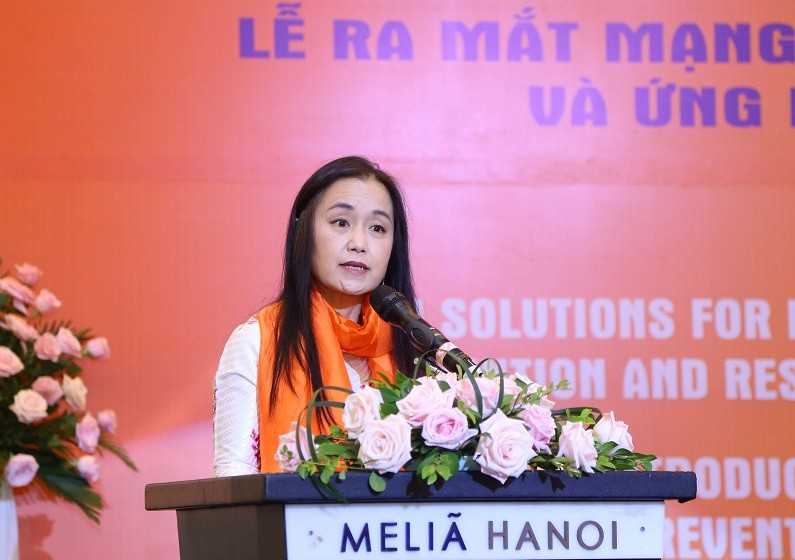 |
| According to Naomi Kitahara, UNFPA Representative in Vietnam, it is necessary to work towards changing cultural and social norms on violence against women. |
UNFPA Representative in Vietnam Naomi Kitahara hailed MoLISA and relevant agencies for their achievements in dealing with gender-based violence over the past five years.
She suggested that more initiatives should be outlined to encourage the involvement of young people in the effort while similar models should be multiplied.
UNFPA called on the Government to issue better cooperation mechanisms in various fields to strengthen intervention activities in a bid to end violence against women, she said.
| Within the framework of the workshop, the network for gender-based violence prevention and response was launched. This is an innovative solution to strengthen coordination and cooperation in the prevention and effective response to gender-based violence. |
 | Reducing Women's Housework Time, A Remarkable Goal in National Strategy on Gender Equality Aiming to reduce women's average hours of unpaid housework and care work to 1.7 times in 2025 and 1.4 times in 2030 compared to men. ... |
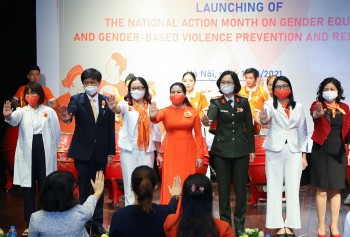 | Vietnam's Big Achievements in Gender Equality & Gender-based Violence Prevention During these harsh economic times, more attention should be made to Vietnam's more vulnerable groups. |
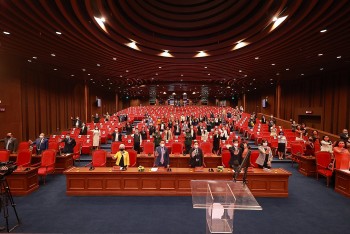 | Vietnam's Legal Sector Attends Meeting on Gender Sensitivity Understanding gender sensitivity is paramount when discussing cases of violence against women and girls. The topic was highlighted at the 7th White Ribbon Breakfast, held ... |
Recommended
 Focus
Focus
Vietnam Leaves Imprints on the World Peacekeeping Map
 Viet's Home
Viet's Home
“Global Vietnamese Singing 2025” - Connecting Hearts Longing for Homeland
 Viet's Home
Viet's Home
Vietnam’s People's Public Security Force Actively Contributes to UN Peacekeeping Operations
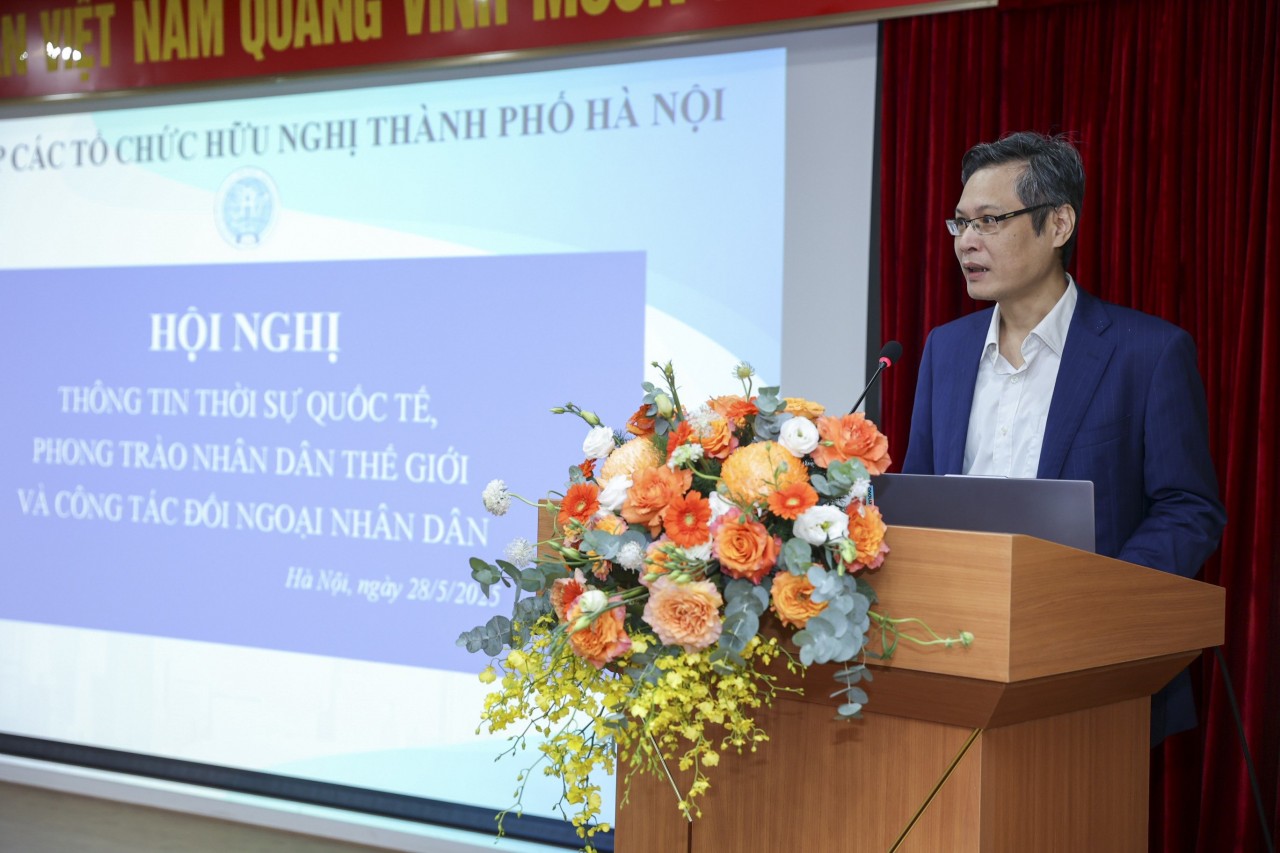 Viet's Home
Viet's Home
HAUFO Enhances Competence of People-to-People Diplomacy Personnel
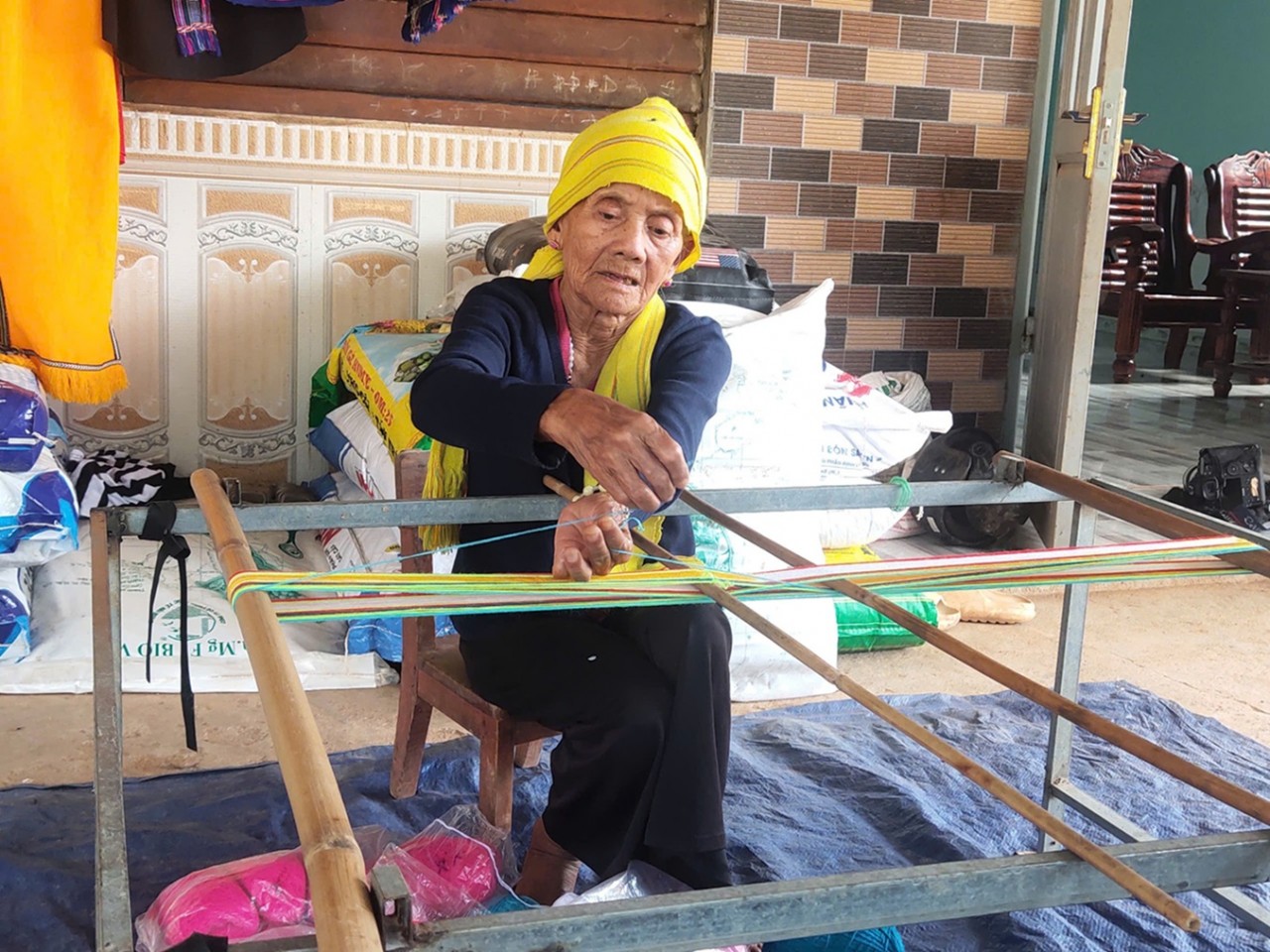 Viet's Home
Viet's Home
Hands that Reserve Da Long Brocade Craft
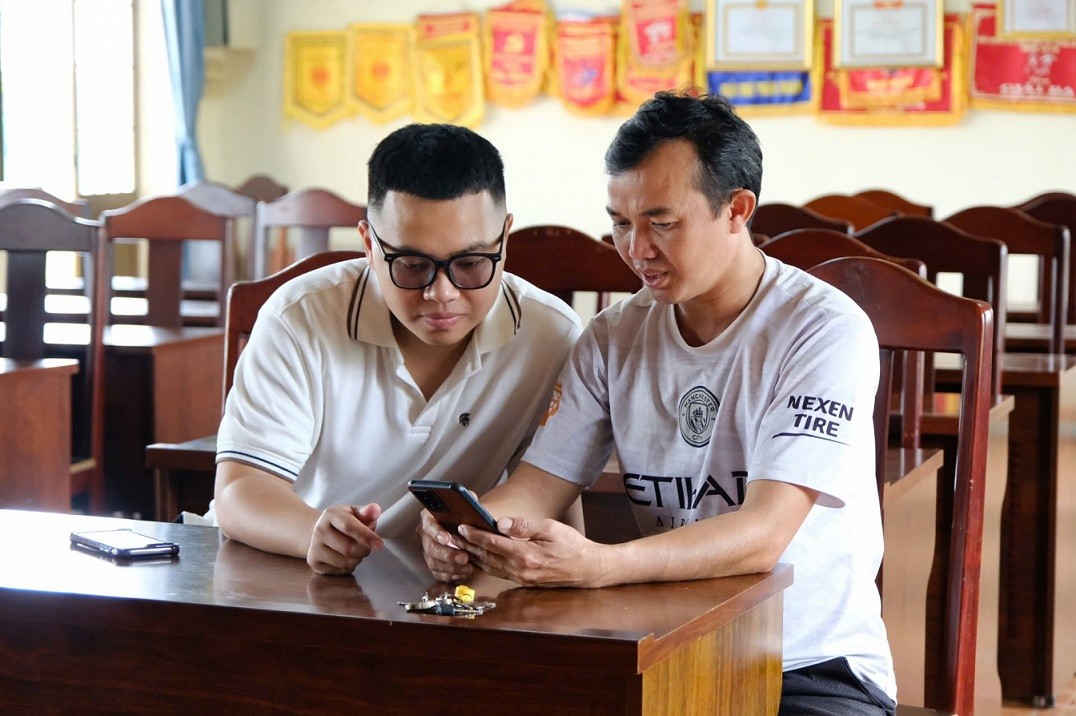 Viet's Home
Viet's Home
Da Rsal – How Digital Transformation Reshape a Poor Commune
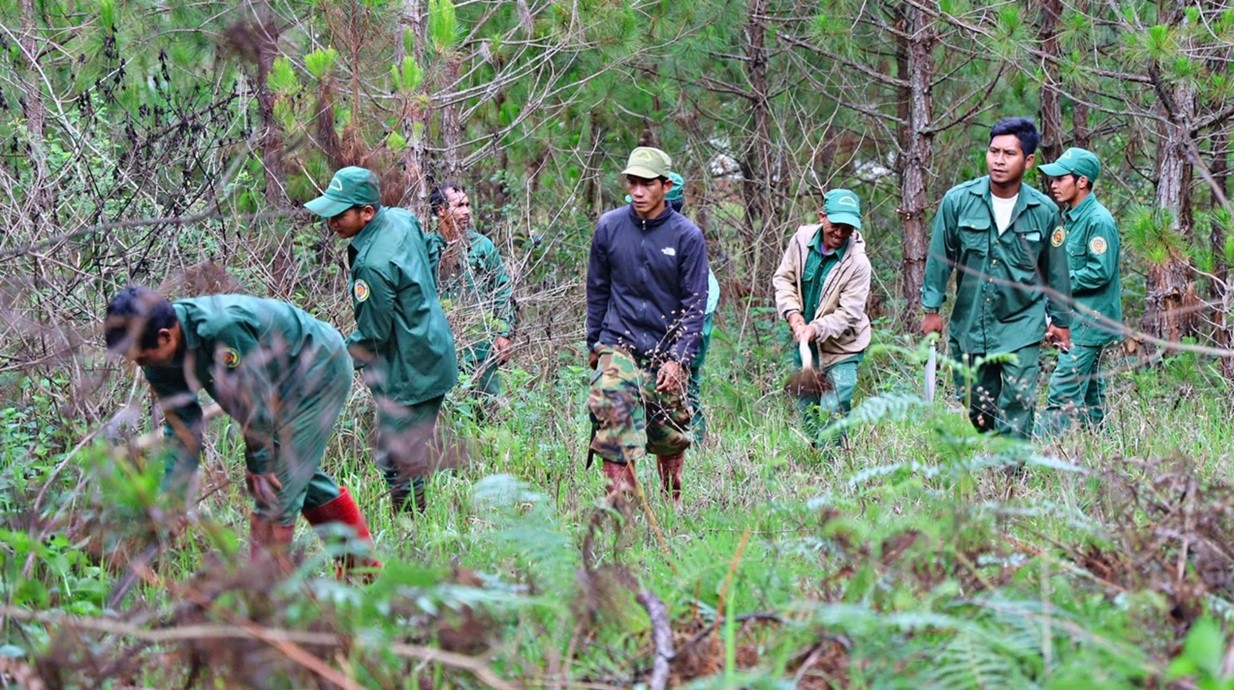 Viet's Home
Viet's Home
Vietnam Classified as “Low Risk” Under the EU Anti-Deforestation Regulation
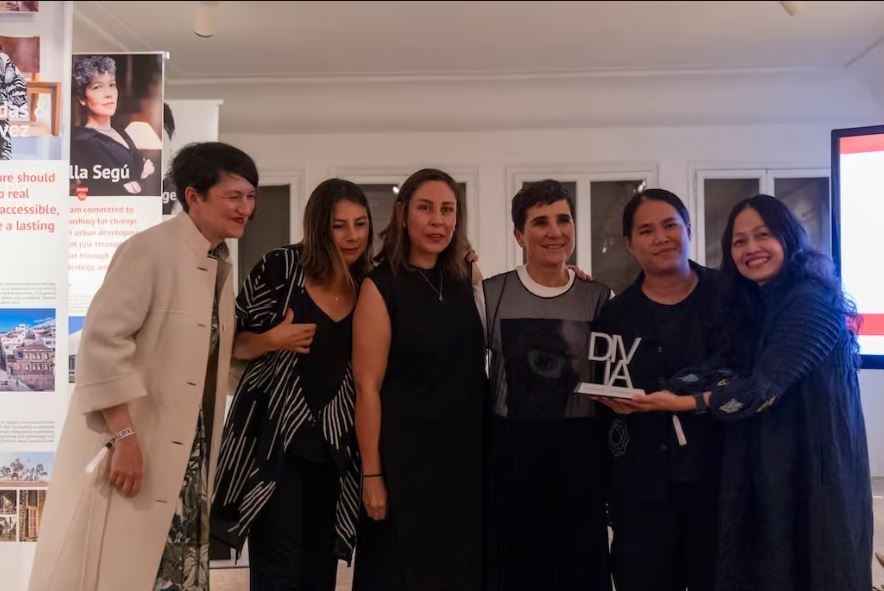 Viet's Home
Viet's Home

